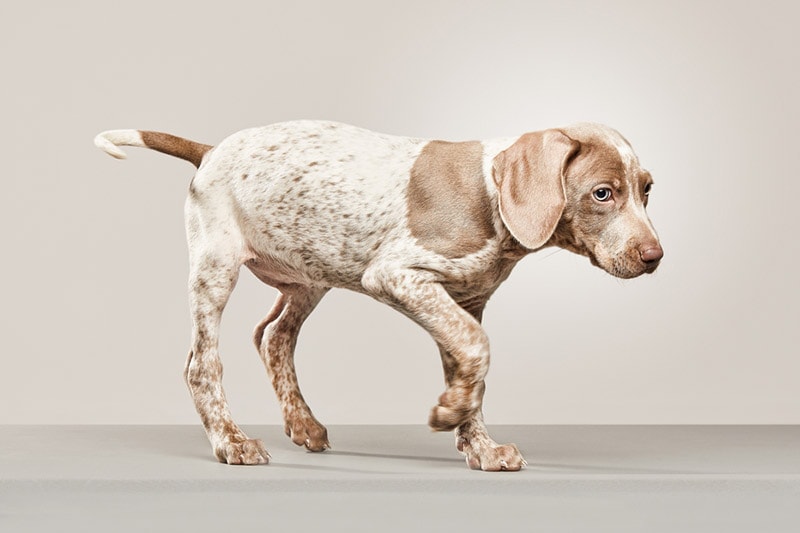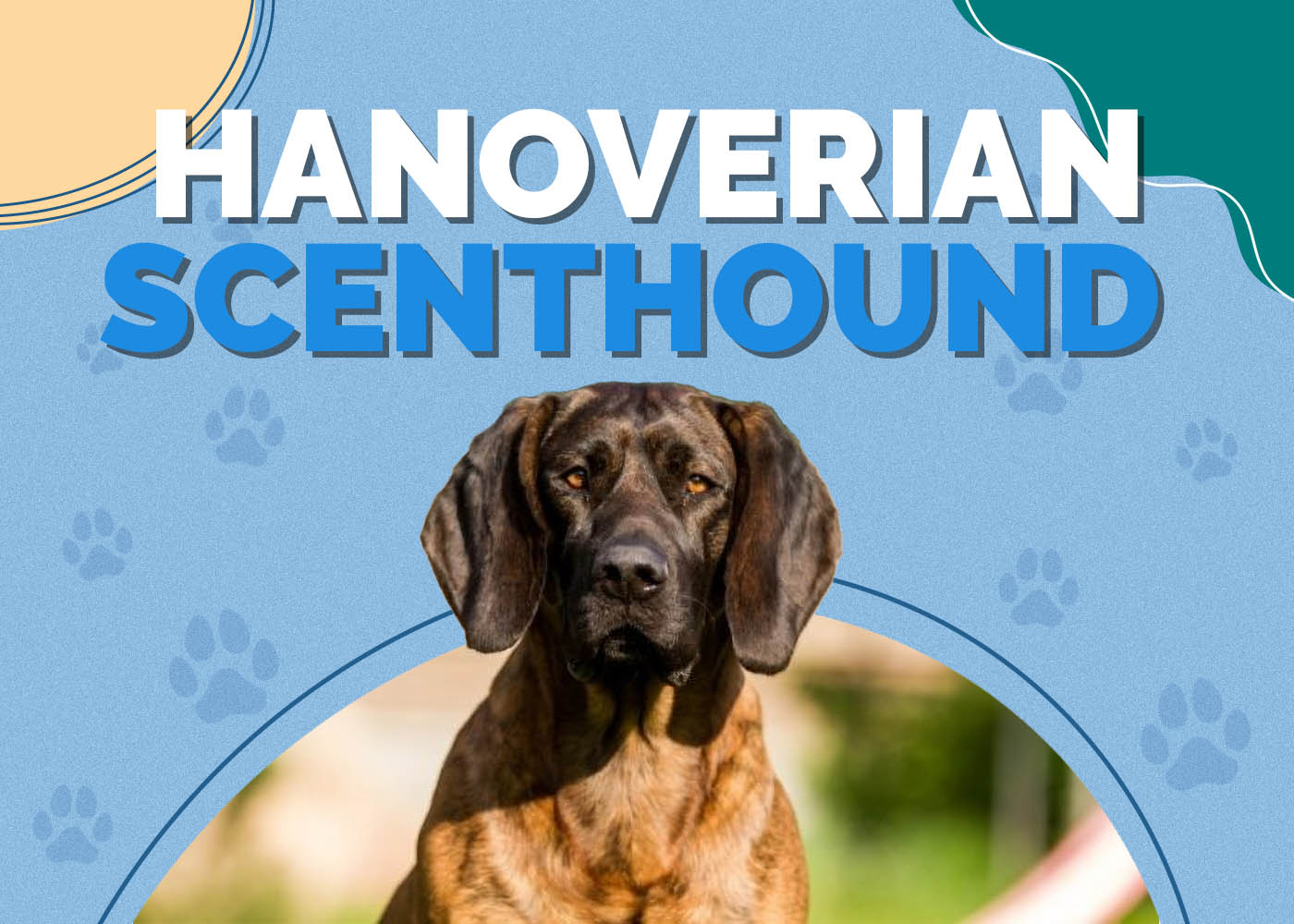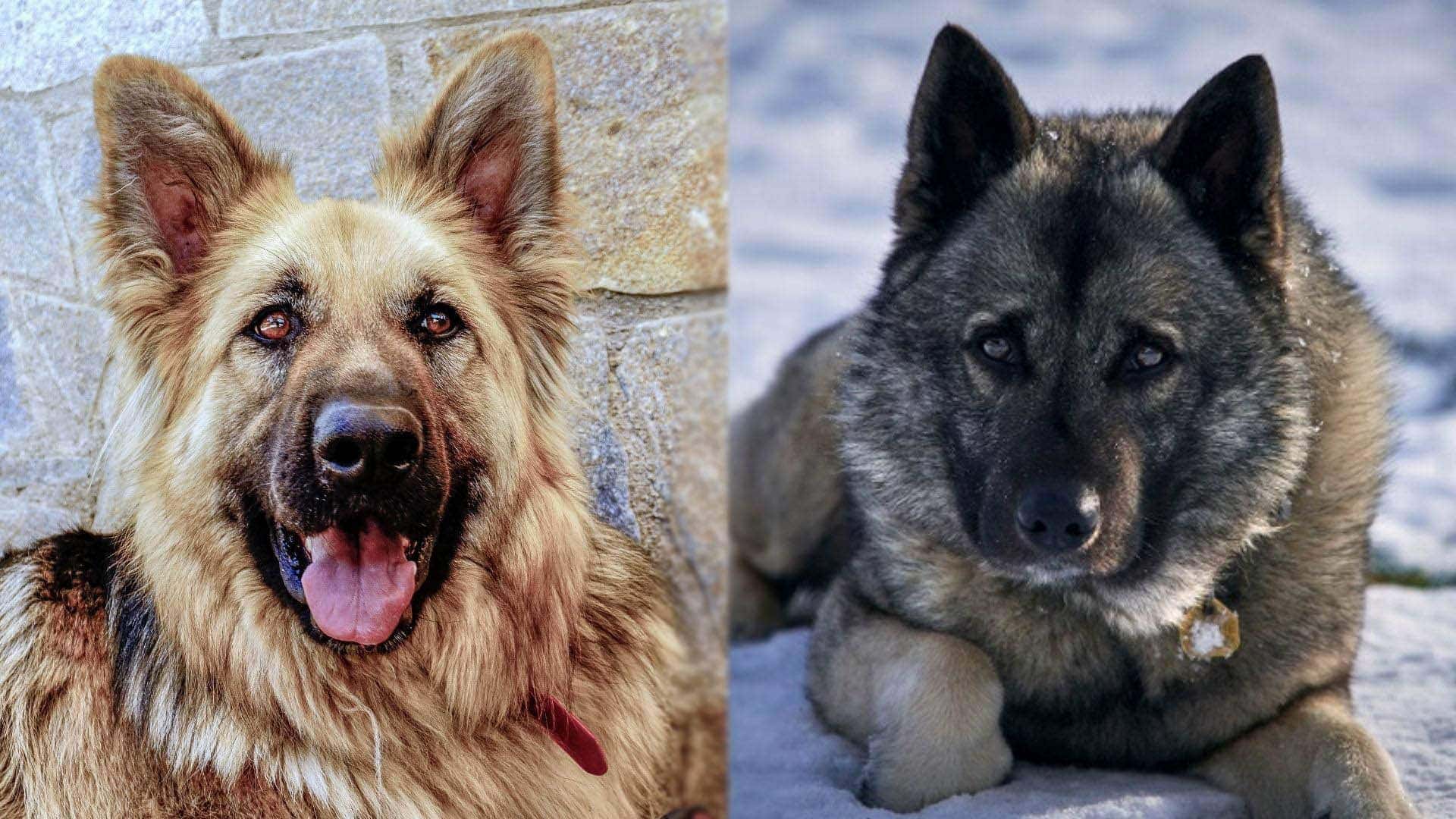Husky vs Golden Retriever: Which Breed Is Right for You?

Updated on
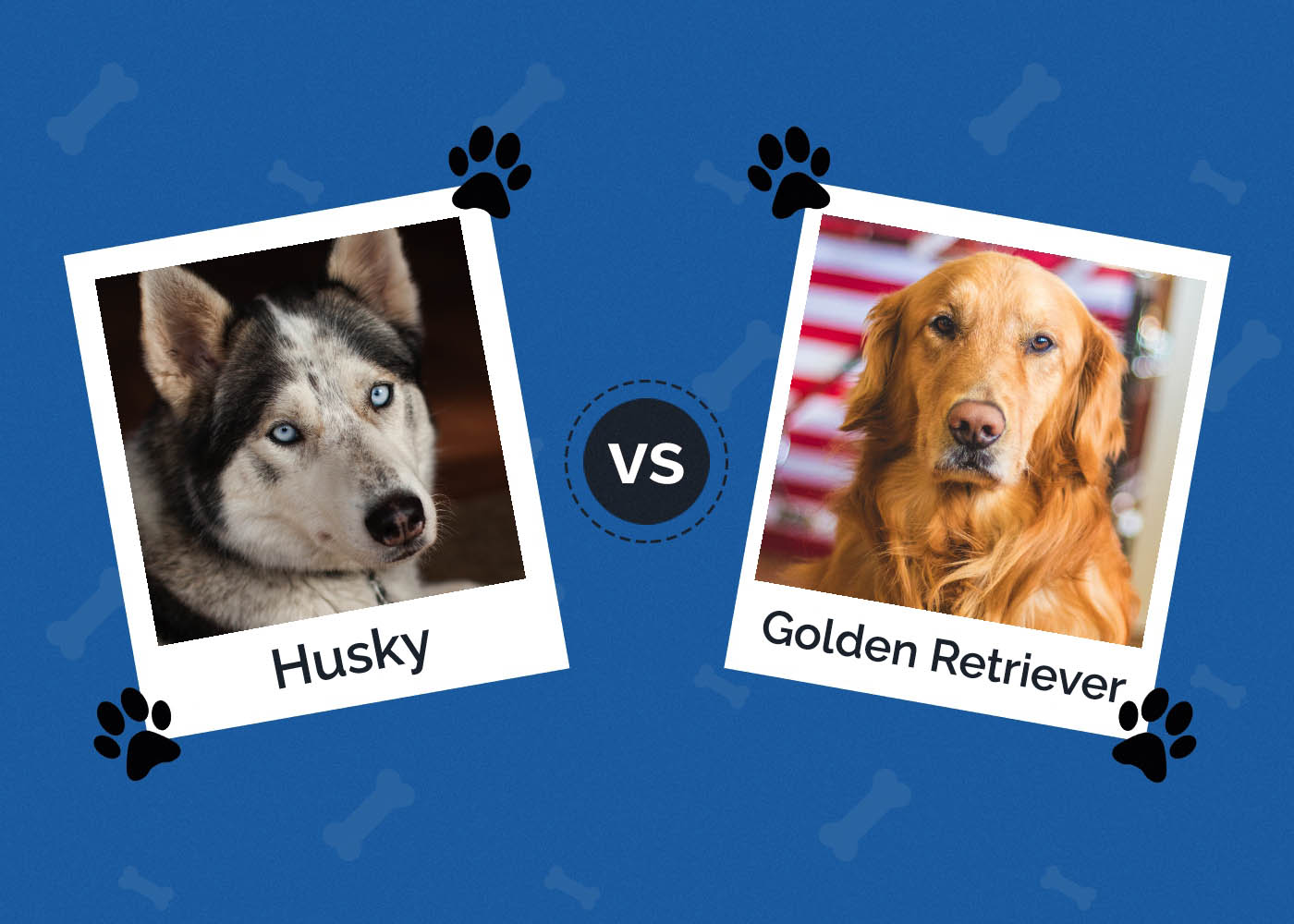
Huskies and Golden Retrievers each had different beginnings, and they look, act, and perform tasks differently. If you have your eye on these breeds but aren’t quite familiar with either of them, you should know about the basics so you can pick the best breed for you.
Visual Differences

A Quick Overview
- Average Height (adult): 20–23 inches
- Average Weight (adult): 35–60 pounds
- Lifespan: 12–15 years
- Exercise: High energy, needs outdoors
- Grooming needs: High
- Family-friendly: Sometimes
- Dog-friendly: Sometimes
- Trainability: Difficult, though smart
- Average Height (adult): 21–24 inches
- Average Weight (adult): 55–75 pounds
- Lifespan: 10–12 years
- Exercise: High needs
- Grooming needs: Moderate
- Family-friendly: Yes, highly social
- Dog-friendly: Yes
- Trainability: Excellent, highly intelligent
Learn About Each Breed’s Origin
Siberian Husky
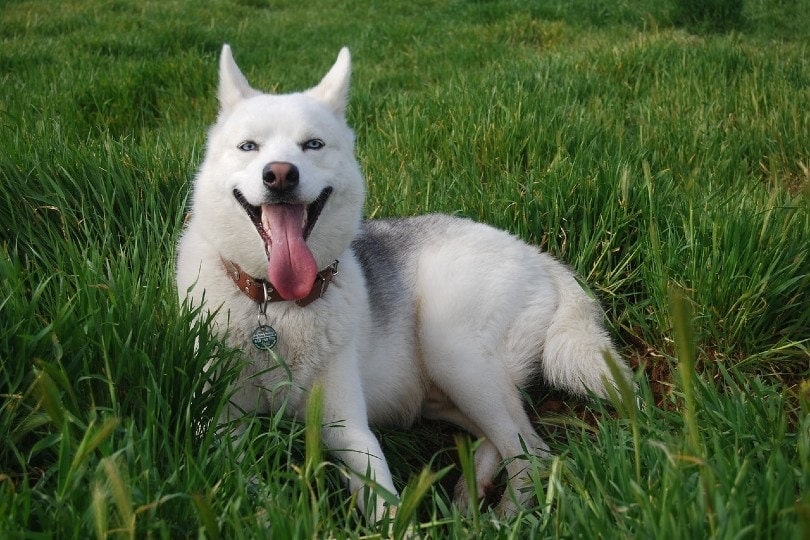
As the name implies, the Siberian Husky comes from Siberia, Russia. They are a member of the Spitz family. They have incredibly distinctive markings and builds. Initially, they kept the Chukchi people company.
In 1909, the breed made their way to Alaska to participate in sled races. Since then, they have made their way through the United States into many homes in many climates. The American Kennel Club officially recognized them in 1930, the 87th breed on the charts.
Huskies are versatile in looks. They have developed distinctive markings that set them apart from other Spitz breeds. They have over 13 color variations and sometimes have blue eyes.
Golden Retriever
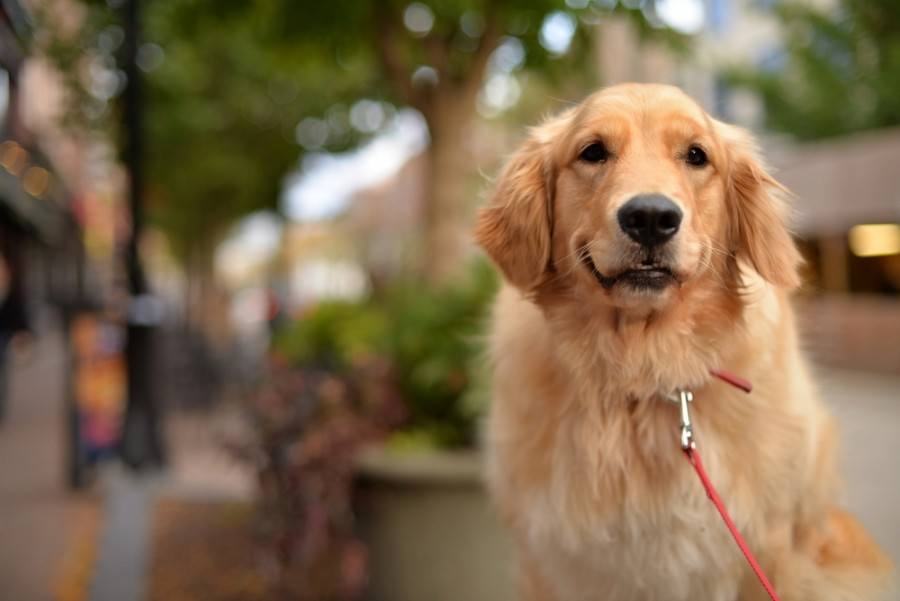
Golden Retrievers were bred into existence in Scotland through the 19th century. Originally, they accompanied hunters to retrieve waterfowl and other small game. Their water-resistant fur was perfect for keeping the elements away while out and about.
They officially became a recognized breed by the American Kennel Club in 1925. They were successful in field trials and obedience skill training.
They do vary in color slightly between countries. English golden retrievers tend to be very light in color, ranging from light yellow to nearly white. American and Canadian golden retrievers are a bit darker and can even be roughly red in color.
Understanding the Personality of the Husky
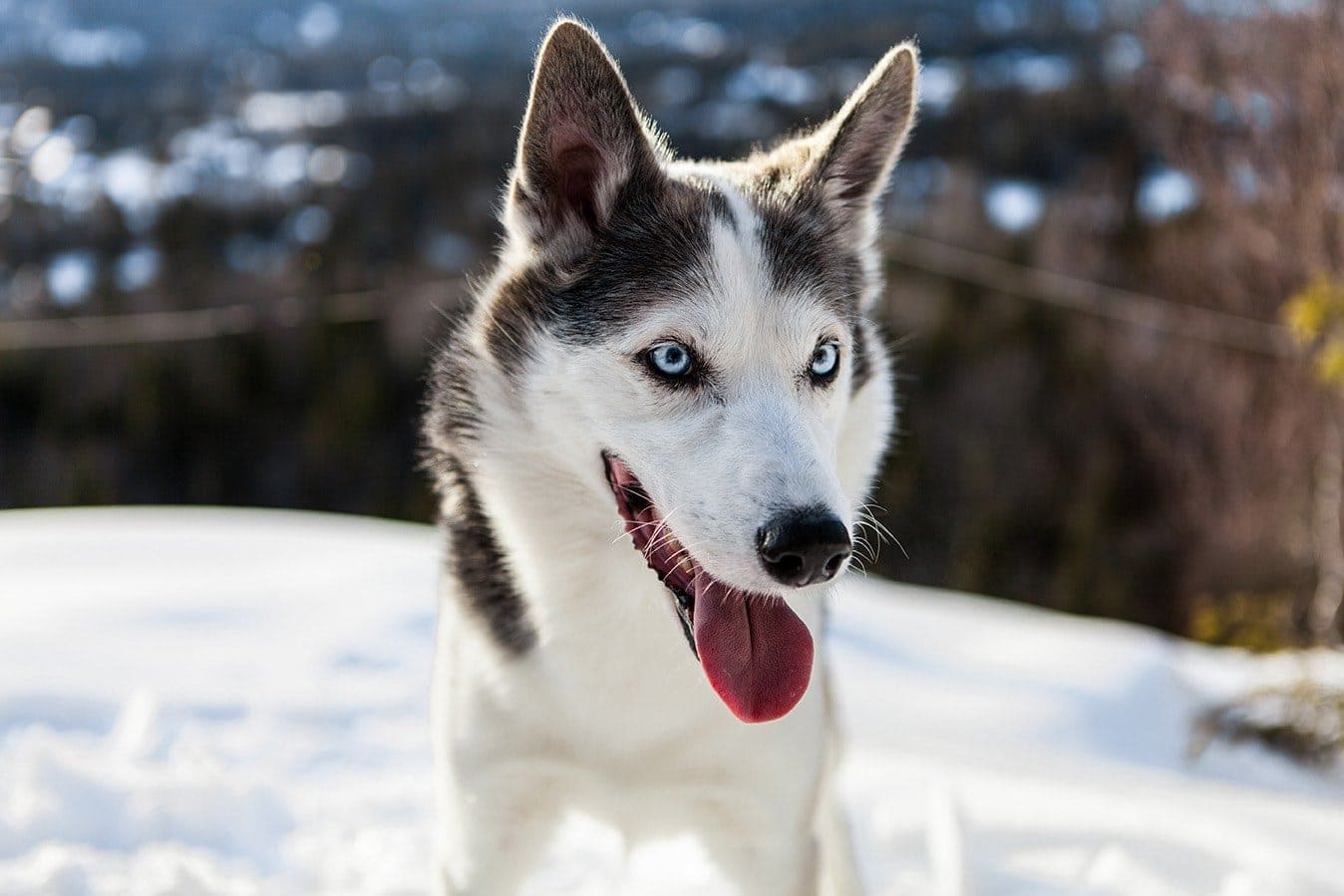
Huskies are known far and wide for their vocal nature. They make various odd noises that most people are not familiar with, which may be perceived as aggression or defensiveness. While Huskies may be slightly territorial, depending on the individual dog, it is much more likely that they are just communicating with you. They also may often howl, like their wolf ancestors.
They love their people, but they may just run off anyway. Having a secure enclosure for your Husky is a must. They have a love for adventure and a deep sense of wanderlust. So, if they see a squirrel or if another temptation strikes their fancy, they may be off and running before you have time to stop them.
Socialization is a must. While they seem friendly overall, they will need to learn proper manners and boundaries with visitors. Because of their high energy, they may be uncontrollably bouncy when others are around, causing them to jump on people or just be overbearing in personal space.
Teaching them politeness should be easy with persistance. They are fiercely intelligent dogs who love to learn. On the other hand, though, they are stubborn. Since they have a pack mentality, it is important that they perceive you as the alpha in the situation and never confuse their roles.
Understanding the Personality of the Golden Retriever

Golden Retrievers are an incredibly friendly, familial breed. They love spending time with people, especially members of their household. They tend to be intuitive, kind, and intelligent.
Goldens do not show aggression or standoffishness. They aren’t aloof or unwelcoming of houseguests. They may bark when someone is at your front door, but they will stand there with their tail wagging. They are patient and loving toward children, making them wonderful pets for growing families.
While socialization is recommended for any dog, these dogs typically take well to other animals regardless. They may have a drive to chase a cat or smaller animal, but this is usually in good fun and non-threatening.
Like all pets, Goldens don’t respond well to harsh treatment. They are emotionally sensitive and will take over-the-top punishing to heart. This can cause depression or nervousness, as they do much better with positive training methods and catch on quickly.
Lifespan and Health Concerns for the Husky

For their size, Huskies have an impressive lifespan of 12 to 15 years. They tend to be hardy and healthy animals with minimal health concerns. However, they are prone to certain ailments such as cataracts, progressive retinal atrophy, hip dysplasia, and hypothyroidism.
In later years, the most common cause of death is various cancer possibilities. They often have basal cell tumors, hemangiopericytomas, and sebaceous gland tumors.
Lifespan and Health Concerns for the Golden Retriever
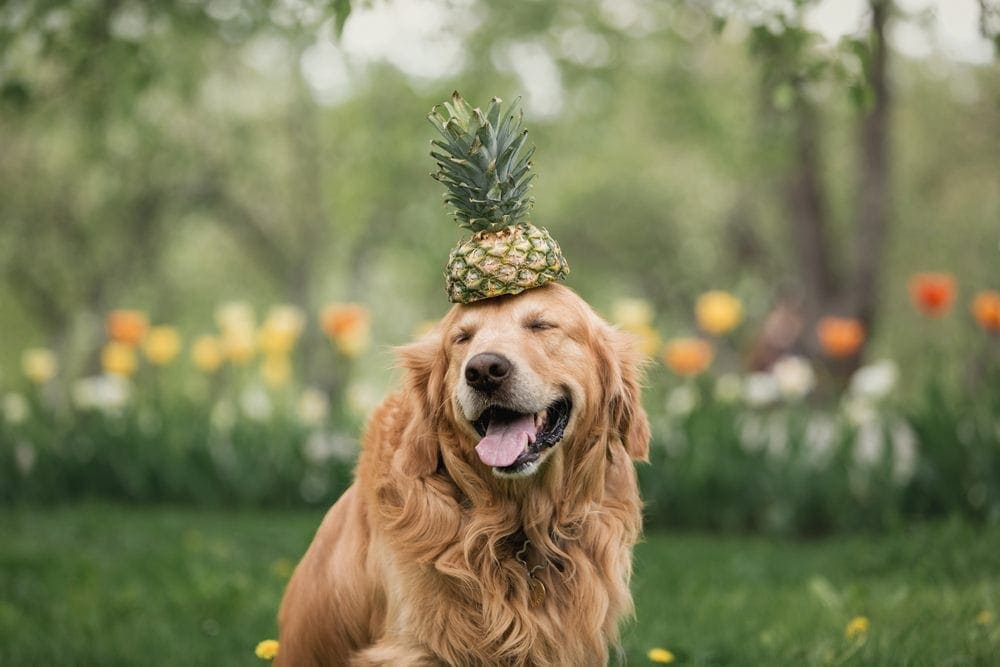
On average, Golden Retrievers live 10–12 years. Unfortunately, golden retrievers don’t have the best luck when it comes to their health. They can have many ailments that can drastically shorten their lifespan. While they can have issues that are not as serious, like obesity, they also suffer from more complicated joint problems, skin problems, and aggressive cancer.
When it comes to cancer, it’s unfortunate to report that over 60% of Goldens will die of some form of cancer as seniors.
Environmental Preferences of Huskies
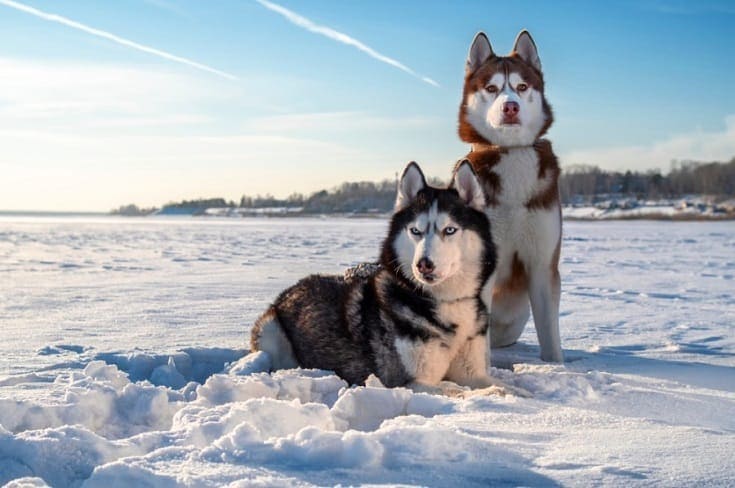
Some dogs require layers of protection to keep them warm in colder months. The Husky thoroughly enjoys the snow and will have no qualms about frigid weather. Yours may love to play and even try to burrow in it. Originally sledding dogs, they haven’t lost their root instincts.
While these dogs may fare well in the snow, they don’t handle heat the same way. Huskies have double coats that protect them from extremely harsh winter temperatures. This can cause overheating in high temperatures, which can be quite dangerous for them. If you intend to have your dog outside for long periods of time and live in high-heat climates, safety precautions are imperative.
Huskies do well living indoors. However, they are an intensely high-energy breed. Since they were made to work without something stimulating going on around them, they would create games of their own. This can include tearing up furniture, chewing up your belongings, or destroying your linoleum or trim. This “bad” behavior is a product of not having enough physical exercise or appropriate mental stimuli.
When it comes to other pets, having a smaller species around may not work out in your favor. Huskies are incredibly prey-driven, which is a trait that can’t be ironed out — even with extensive training. They are typically good with other dogs, however, and develop a strong pack mentality—when you’re family, you’re family.
Environmental Preferences of Golden Retrievers
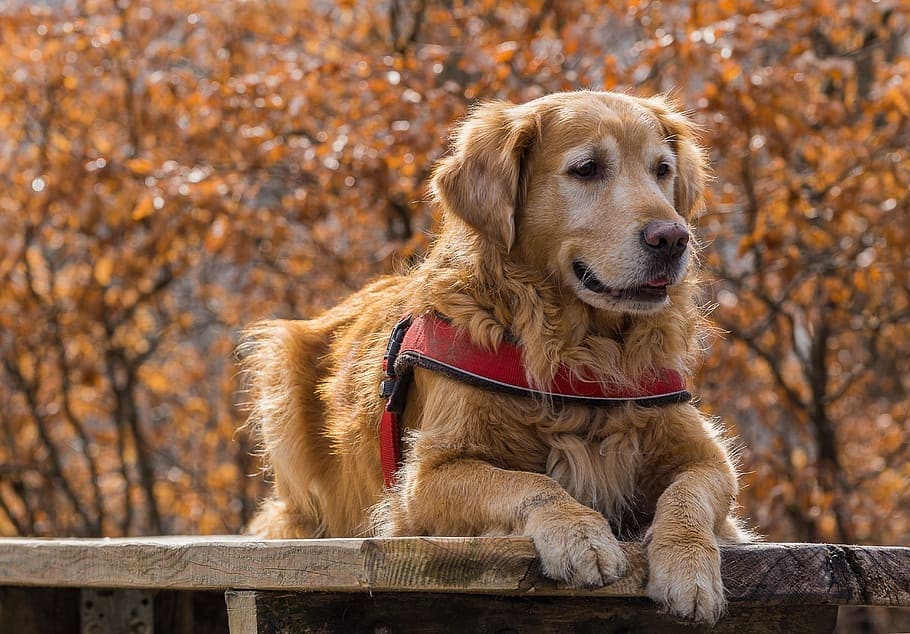
Because of their adoration for humans, these dogs will be right by your side. They enjoy both the outdoors and indoors. However, they would not be happy being outside constantly without attention and love. They are far too social to be without company for a long time.
If you want a guard dog or watchdog to keep your household free of danger, they may let you down in this department. They might tell you when a stranger is nearby, but otherwise, they won’t do much. Assigning such a role will lead to disappointment. They would much rather be romping in the yard or playing a game of catch.
Because of their laidback, easygoing nature, they make fine apartment dogs. However, they are prone to obesity, so making sure they get adequate exercise and don’t over-indulge in food is a must. Also, if they live in a small space, they may become destructive chewers to entertain themselves, especially in their younger days.
Grooming Needs for Huskies
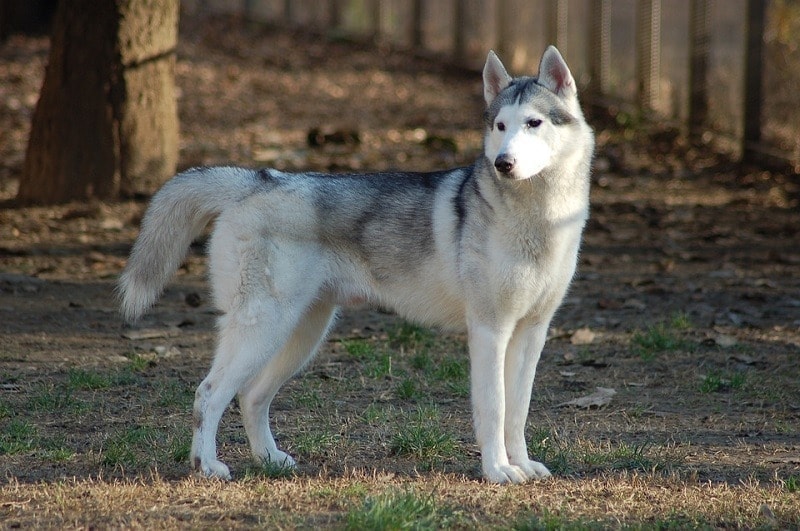
Huskies are double-coated, which means that they will shed their entire coat one to two times per year. If you have ever seen a Husky with mangy-like poufs of hair, this is likely why. It’s a natural process that helps them reduce their hair in a warmer climate to maintain proper body temperature.
It may seem that their coats make them high maintenance, but that’s not necessarily true. They do benefit from a good brush at least once per week. If you feel the need, you can condition or oil them thoroughly during bath time to keep their coat soft and manageable.
Always be sure to remove clumps of hair to avoid matting. Once the fur begins to mat, it can be tough to undo and may even need to be cut out. If you keep an eye on things, their overall hair care should be smooth sailing.
Grooming Needs for Golden Retrievers
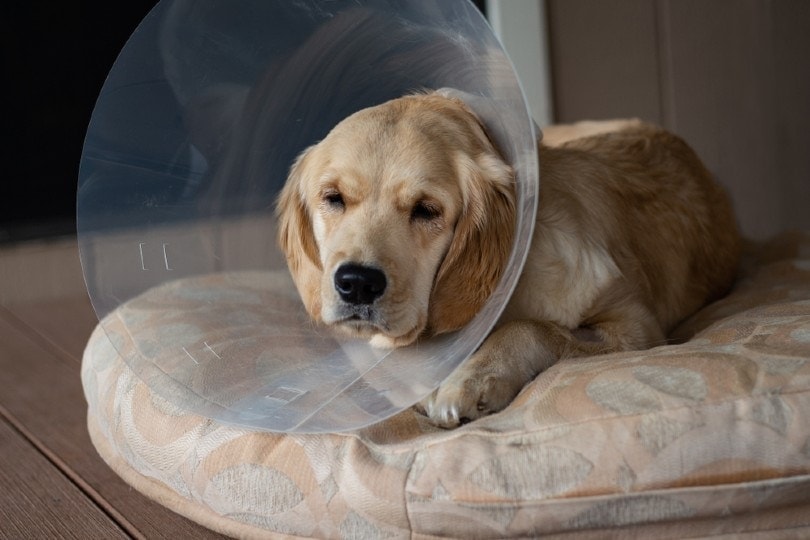
Like Huskies, Golden Retrievers are a double-coated breed. Underneath their long, flowy outer coat is a fuzzy layer of protective fur, which protects them from harsh sunlight, cold temperatures, and precipitation.
It isn’t recommended to shave your Golden, even if you think it will cool them down. Just keep them brushed to avoid matting or shedding. Because they are so affectionate, this could be a great opportunity to bond with them and develop trust early on.
Goldens tend to get ear infections, so be sure to groom the hair around the ears. Also, you should use an ear cleaner weekly. Always check with your veterinarian before using any new products on your dog, however.
A Closer Look
That was a large amount of information to digest, so let’s break things down to see which magnificent pet you might want to pick.
- Both have double coats that will need regular brushing.
- Both are loyal to their families.
- Huskies are more energetic and likely to venture off on their own.
- Goldens do well with people of all ages.
- Huskies may be more protective of their people and property.
- Goldens suffer from more health ailments.
- Huskies have longer lifespans.
- Huskies love the outdoors, while Goldens prefer to be with their people.
- Goldens do well with other pets, while Huskies have high prey drives.
- Goldens are more laidback and relaxed, while Huskies are more high-strung.
Husky vs Golden Retriever – Which Is the Perfect Fit?
These dogs are drastically different from one another. As you can see in the breakdown, they vary in terms of body structure, markings, personality, and energy. Each breed is spectacular in its own way and will bring happiness to the right family.
Always remember to purchase from a reputable breeder with a proven lineage to avoid any health issues caused by irresponsible breeding. If you don’t need a puppy, remember that shelters and rescues are full of animals waiting for loving homes.
Related Read:
- Golden Retriever vs Labradoodle: The Main Differences (With Pictures)
- Husky vs Shiba Inu: The Main Differences (With Pictures)
Featured Image Credit: (L) Regular Man, Unsplash | (R) Caleb Fisher, Unsplash



